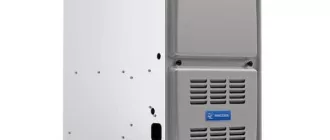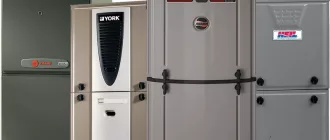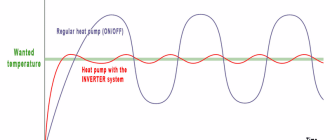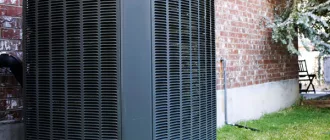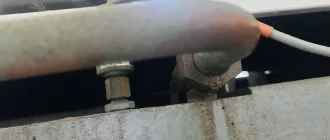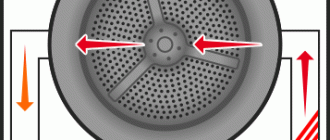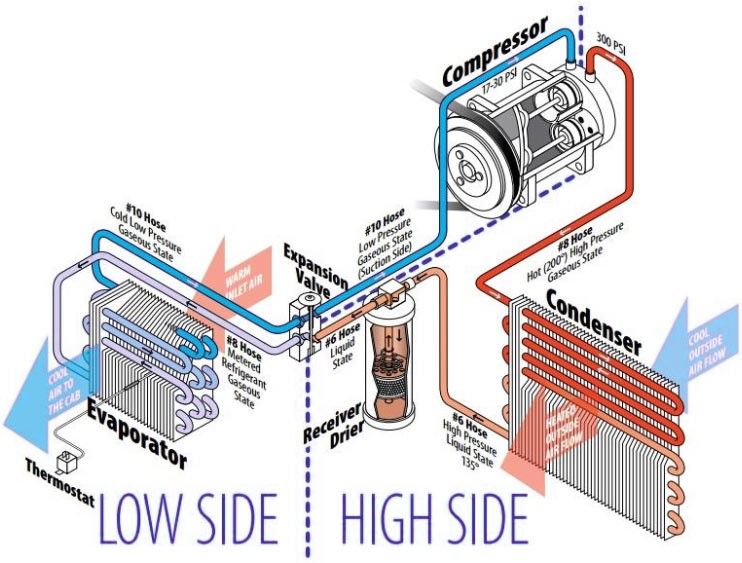
Tips for Selecting an HVAC System
Selecting the right HVAC system for your home or office is an important decision that can have a significant impact on your comfort and energy bills. With so many options to choose from, it can be overwhelming to know where to start. Fortunately, we’ve gathered some expert advice and guidelines to help you make the best choice for your needs.
1. Determine your specific needs: Before you begin shopping for an HVAC system, take the time to assess your specific needs. Consider factors such as the size of your space, the climate you live in, and your budget. This will help you narrow down your options and make a more informed decision.
2. Research and compare different brands and models: It’s important to do your research and compare different brands and models of HVAC systems. Look for reputable manufacturers with a proven track record of quality and reliability. Read customer reviews and ratings to get a better idea of what to expect.
3. Consider energy efficiency: Energy efficiency is a key factor to consider when selecting an HVAC system. Look for systems that have high SEER (Seasonal Energy Efficiency Ratio) ratings, as this indicates how efficiently the system can cool or heat your space. Investing in an energy-efficient system can help reduce your energy bills in the long run.
4. Seek professional advice: It’s always a good idea to seek professional advice when selecting an HVAC system. A qualified HVAC technician can assess your needs and recommend the best system for your space. They can also provide guidance on proper installation and maintenance to ensure optimal performance.
Remember, selecting an HVAC system is a long-term investment, so take your time and make an informed decision. By following these tips and seeking expert advice, you can find a system that meets your needs and provides optimal comfort for years to come.
Tips for Selecting an HVAC System
When selecting an HVAC system for your home or business, there are several important factors to consider. Here are some helpful tips to guide you through the process:
1. Determine your heating and cooling needs: Before selecting an HVAC system, it’s crucial to assess your heating and cooling needs. Consider factors such as the size of your space, the climate in your area, and the level of insulation in your building.
2. Energy efficiency: Look for an HVAC system that is energy efficient. A system with a high energy efficiency rating can help lower your energy bills and reduce your carbon footprint.
3. Size of the system: Make sure you choose an HVAC system that is the right size for your space. A system that is too large will waste energy and may not effectively cool or heat your building, while a system that is too small may struggle to maintain a comfortable temperature.
4. Quality and reliability: It’s important to select an HVAC system from a reputable brand known for its quality and reliability. A reliable system will require fewer repairs and have a longer lifespan.
5. Consider your budget: HVAC systems can vary significantly in price. Set a budget and look for a system that meets your needs without breaking the bank. Keep in mind that investing in a higher-quality system may save you money in the long run.
6. Seek professional advice: Consult with a professional HVAC technician to get their expert opinion on the best system for your needs. They can help you assess your requirements and recommend a system that will provide optimal heating and cooling performance.
By following these tips, you can make an informed decision when selecting an HVAC system that will provide efficient and reliable heating and cooling for your space.
Begin with a Comprehensive Assessment
When it comes to selecting an HVAC system, it is crucial to begin with a comprehensive assessment of your needs. This assessment will help you determine the right system for your space and ensure that it meets your requirements.
Start by evaluating the size of the area that needs to be heated or cooled. Consider factors such as square footage, ceiling height, and insulation. This information will help you determine the capacity of the HVAC system you need.
Next, think about your specific heating and cooling needs. Do you live in a region with extreme temperatures? Are there any specific requirements or restrictions in your building or space? Consider factors such as air quality, humidity levels, and any special equipment or processes that require temperature control.
Additionally, assess your budget and energy efficiency goals. HVAC systems come in a range of prices, and it is important to find one that fits within your budget while still meeting your requirements. Look for energy-efficient models that can help you save on your utility bills in the long run.
Finally, consider any future plans or potential changes to your space. If you are planning on expanding or renovating, it is important to choose an HVAC system that can accommodate future needs and changes.
| 1. Evaluate the size and specific needs of your space |
| 2. Consider your budget and energy efficiency goals |
| 3. Anticipate future needs or changes to your space |
By beginning with a comprehensive assessment, you can ensure that you select the right HVAC system for your needs, providing comfort and efficiency for years to come.
Determine the Size of your Space
When selecting an HVAC system, it is essential to consider the size of your space. The size of your space will directly impact the efficiency and performance of the HVAC system. If the system is too small for your space, it will struggle to cool or heat the area adequately, leading to poor comfort levels. On the other hand, if the system is too large, it can lead to energy wastage and inefficient operation.
To determine the appropriate size of the HVAC system for your space, you need to consider factors such as the square footage, ceiling height, insulation, and the number of windows in the area. This information will help you calculate the British Thermal Units (BTUs) required to cool or heat your space effectively.
It’s crucial to consult with an HVAC professional or use an online BTU calculator to ensure accuracy in determining the system size. A professional can consider additional factors like climate, orientation of the building, and internal heat gain from appliances and occupants. By correctly sizing your HVAC system, you can optimize its performance, energy efficiency, and overall comfort levels in your space.
Consider Energy Efficiency Ratings
When selecting an HVAC system, it’s important to consider the energy efficiency ratings. These ratings provide valuable information about how efficiently the system converts energy into heat or cool air. The higher the rating, the more efficient the system.
Look for systems that have a high Seasonal Energy Efficiency Ratio (SEER) for air conditioners or a high Annual Fuel Utilization Efficiency (AFUE) for furnaces. These ratings indicate how well the system uses energy to provide the desired climate control.
By choosing an HVAC system with high energy efficiency ratings, you can save money on your energy bills and reduce your carbon footprint. Additionally, energy-efficient systems often qualify for rebates and incentives, further offsetting the cost of the system.
Remember to also consider the climate in your area when selecting an HVAC system. For example, if you live in a hot and humid climate, you may want to prioritize a system with a high SEER rating for efficient cooling. On the other hand, if you live in a cold climate, a system with a high AFUE rating for efficient heating may be more important.
Ultimately, taking the time to consider and compare energy efficiency ratings will help you select an HVAC system that not only meets your comfort needs but also saves you money in the long run.
Evaluate the SEER Rating
When selecting an HVAC system, one of the most important factors to consider is the SEER rating. SEER stands for Seasonal Energy Efficiency Ratio, and it measures the efficiency of the system. The higher the SEER rating, the more energy efficient the system is.
There are several tips to keep in mind when evaluating the SEER rating of an HVAC system:
1. Look for a high SEER rating: The minimum SEER rating required by law is 13, but systems with a higher rating can offer greater energy savings in the long run. Consider investing in a system with a SEER rating of 16 or higher for maximum efficiency.
2. Compare different SEER ratings: When considering different HVAC systems, compare their SEER ratings to determine which one offers the best energy efficiency. Even a small increase in the SEER rating can result in significant energy savings over time.
3. Consider the upfront cost: While systems with higher SEER ratings may provide better energy savings, they often come with a higher upfront cost. Consider your budget and calculate the potential energy savings to make an informed decision.
4. Think about your specific needs: The right SEER rating for your HVAC system depends on your specific needs and climate conditions. Factors such as average temperatures and humidity levels play a role in determining the optimal SEER rating for your area.
By evaluating the SEER rating of an HVAC system, you can make an informed decision and choose a system that offers the best energy efficiency for your needs. Remember to consider the upfront cost, compare different ratings, and think about your specific requirements to find the perfect HVAC system for your home.
Understand AFUE Ratings
When selecting an HVAC system, it’s crucial to understand AFUE ratings. AFUE stands for Annual Fuel Utilization Efficiency and it measures how efficiently a gas furnace converts fuel into heat. Understanding AFUE ratings can help you make an informed decision and choose a system that is both energy-efficient and cost-effective.
The AFUE rating is expressed as a percentage and represents the amount of heat produced by a furnace compared to the amount of fuel consumed. For example, an AFUE rating of 95% means that 95% of the fuel is used to produce heat, while the remaining 5% is lost in the combustion process.
Higher AFUE ratings indicate that a furnace is more energy-efficient, as it converts a higher percentage of fuel into usable heat. However, it’s important to note that higher AFUE ratings often come with a higher price tag.
It’s recommended to choose a furnace with an AFUE rating of at least 90% or higher. While higher AFUE ratings may seem appealing, the cost savings from increased efficiency may not always outweigh the additional upfront cost.
Keep in mind that AFUE ratings are specific to gas furnaces and do not apply to other types of HVAC systems, such as heat pumps or electric furnaces. Different systems may have their own rating systems for measuring energy efficiency.
| Above 90% | Highly efficient |
| 80-89% | Good efficiency |
| 70-79% | Standard efficiency |
| Below 70% | Low efficiency |
Understanding AFUE ratings and considering them when selecting an HVAC system can help you choose a system that meets your energy efficiency goals and budget.
Assess Your Heating and Cooling Needs
Before selecting an HVAC system, it is important to assess your heating and cooling needs. Every home is different, and the size, layout, insulation, and local climate are all factors that can affect your HVAC requirements.
One of the first steps in assessing your needs is to determine the size of the HVAC system necessary for your home. This can be calculated using the square footage of your home and other factors such as the number of rooms, ceiling height, and sun exposure. Consulting with an HVAC professional can help ensure accurate calculations.
Additionally, it is important to consider your climate and how much heating and cooling you will need. If you live in a region with cold winters, a system with a higher heating capacity may be necessary. On the other hand, if you live in a hot and humid climate, a system with efficient cooling capabilities is essential.
Furthermore, assessing your home’s insulation is crucial when determining your HVAC needs. Well-insulated homes require less heating and cooling, while poorly insulated homes may require a larger system to compensate for heat loss or gain. Evaluating your insulation levels and addressing any deficiencies can help optimize your HVAC system’s efficiency.
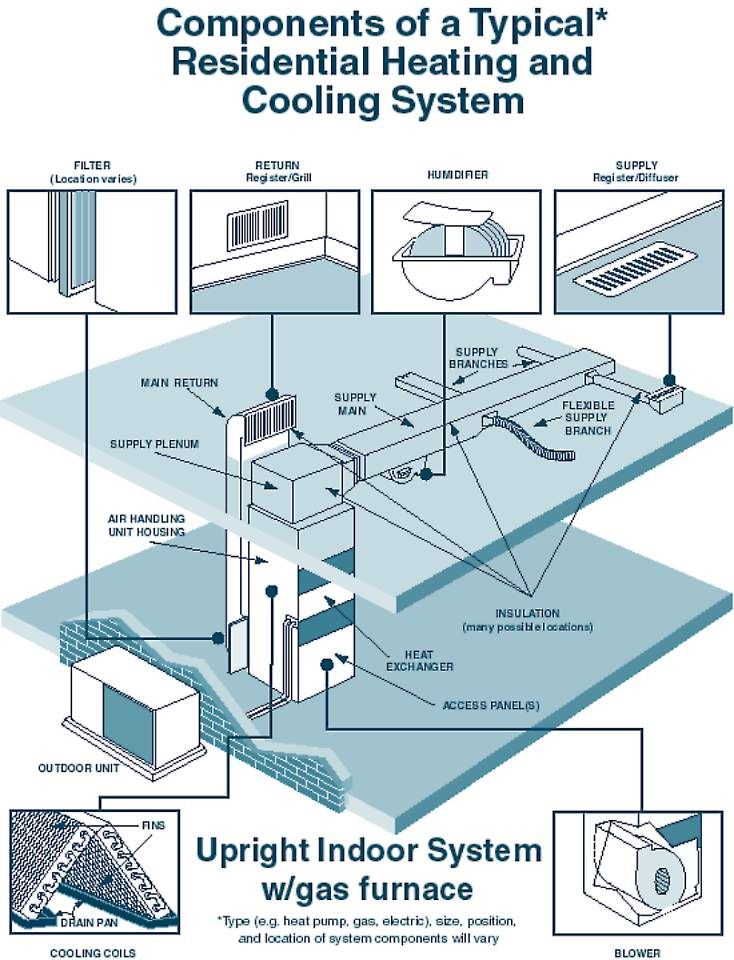
In conclusion, taking the time to assess your heating and cooling needs is crucial when selecting an HVAC system. By considering factors such as the size of your home, climate, and insulation, you can make an informed decision and choose a system that will effectively meet your needs for years to come.
Consider the Type of HVAC System
When selecting an HVAC system, it is important to consider the type that will best suit your needs. HVAC stands for Heating, Ventilation, and Air Conditioning, and these systems are designed to regulate the temperature and air quality in your home or building.
There are several types of HVAC systems to choose from, including:
1. Split Systems: These systems consist of two main components – an outdoor unit that houses the compressor and condenser, and an indoor unit that contains the evaporator coil and blower. Split systems are the most common type of HVAC system and are suitable for most residential and commercial applications.
2. Packaged Systems: Unlike split systems, packaged systems house all components in a single unit. This includes the compressor, condenser, and evaporator coil. Packaged systems are typically installed on the roof or outside the building and are often used in commercial properties.
3. Ductless Mini-Split Systems: These systems are similar to split systems but do not require ductwork to distribute air. Instead, they use individual air-handling units that are installed in each room or zone. Ductless mini-split systems are ideal for homes or buildings without existing ductwork or for specific areas that require independent temperature control.
When considering the type of HVAC system to choose, factors such as the size of your home or building, the climate in your area, and your budget should be taken into account. It is also important to consult with a professional HVAC technician who can assess your needs and provide recommendations.
By carefully considering the type of HVAC system that best suits your needs, you can ensure optimal comfort and energy efficiency for your home or building.
Look for Proper Insulation
When selecting an HVAC system for your home, one important factor to consider is proper insulation. Good insulation is crucial for maintaining a comfortable indoor temperature and reducing energy consumption.
Insulation helps to prevent heat transfer between the inside and outside of your home. It keeps the warm air inside during the colder months and prevents hot air from entering during the warmer months. Without proper insulation, your HVAC system will have to work harder to maintain the desired temperature, leading to higher energy bills.
There are several types of insulation materials available, including fiberglass, cellulose, and spray foam. Each type has its own benefits and considerations, so it’s important to research and choose the right insulation for your specific needs.
In addition to insulation in your walls, ceilings, and floors, don’t forget about sealing any air leaks or gaps in your home. These can also contribute to heat loss and reduced energy efficiency.
During the HVAC system selection process, make sure to discuss insulation options with your contractor. They can help you understand the best insulation choices for your home and provide guidance on installation and cost considerations.
By investing in proper insulation, you can maximize the efficiency and performance of your HVAC system. This will not only improve your indoor comfort but also save you money on energy bills in the long run.
Research Different Brands and Models
When selecting an HVAC system, it’s important to research different brands and models to ensure you choose the best option for your needs. There are many factors to consider when comparing brands and models, including energy efficiency, reliability, and cost.
Start by reading reviews and testimonials from customers who have used the brands and models you are interested in. This will give you a good idea of the performance and reliability of each option. Look for any common issues or complaints, as well as positive feedback.
It’s also a good idea to consult with HVAC professionals or experts who can provide you with valuable insights and recommendations. They can guide you in choosing brands and models that are known for their quality and durability.
Consider the energy efficiency ratings of different brands and models as well. Look for systems that have high SEER (Seasonal Energy Efficiency Ratio) ratings, as these will be more energy-efficient and can help save you money on your energy bills in the long run.
Another important factor to consider is the cost of the HVAC system. While it may be tempting to go for the cheapest option, it’s important to weigh the initial cost against long-term savings and benefits. A higher-priced system may have better quality and longevity, which can save you money on repairs and replacements in the future.
By thoroughly researching different brands and models, you can make a more informed decision and select an HVAC system that will provide you with optimal comfort and efficiency.
Compare Pricing and Installation Costs
One of the most important factors to consider when selecting an HVAC system is the cost. You should compare the pricing and installation costs of different systems to ensure you are getting the best value for your money.
When comparing pricing, it is important to consider both the upfront cost and the long-term savings. While a more expensive system may have a higher upfront cost, it may also save you money in the long run by being more energy-efficient. On the other hand, a cheaper system may have a lower upfront cost but may end up costing you more in energy bills over time.
In addition to pricing, you should also consider the installation costs. Some HVAC systems require more complex installation processes, which can result in higher installation costs. Make sure to inquire about installation costs when getting quotes from different HVAC contractors.
It is also a good idea to compare warranties offered by different HVAC manufacturers. A longer warranty can provide you with peace of mind and may save you money on repairs in the future.
Overall, comparing pricing and installation costs is crucial in selecting an HVAC system that suits both your budget and your needs. It allows you to make an informed decision and ensures that you are getting the best value for your investment.
Get Recommendations and Reviews
When selecting an HVAC system, it’s important to gather recommendations and read reviews from reliable sources. Ask friends, family, and neighbors for their experiences with different HVAC systems and contractors. Their recommendations can provide valuable insights into the performance and reliability of different systems.
In addition to seeking recommendations from people you trust, it’s also helpful to read online reviews. Look for reviews on websites and forums dedicated to HVAC systems and home improvement. Pay attention to both positive and negative reviews to get a well-rounded understanding of the different systems and contractors.
Keep in mind that not all reviews are impartial, so it’s important to critically evaluate the information you come across. Look for reviews that provide specific details about the pros and cons of different HVAC systems and installations. Avoid relying solely on reviews that seem overly biased or do not offer any substantive information.
By getting recommendations and reading reviews, you can make a more informed decision when selecting an HVAC system. This research will help you find a system that suits your needs and has a track record of reliable performance.
Consider Maintenance and Warranty
When selecting an HVAC system, it is important to consider the maintenance requirements and warranty options. Proper maintenance is crucial for ensuring the efficiency and longevity of the system.
Before making a purchase, inquire about the recommended maintenance schedule and the availability of professional servicing. Regular maintenance, such as cleaning or replacing filters, can improve the airflow and efficiency of the system. Neglecting maintenance tasks can lead to decreased performance and potential breakdowns.
Additionally, it is important to carefully review the warranty options provided by the manufacturer. A comprehensive warranty can offer peace of mind and protection against unexpected repairs or malfunctions. Be sure to understand the terms and conditions of the warranty, including its duration and coverage. Some warranties may require regular maintenance or specific installation requirements to remain valid.
Consider opting for extended warranties or service plans that can provide additional coverage beyond the standard warranty. These plans can offer added protection and assistance for repairs or replacements.
Overall, considering the maintenance requirements and warranty options is essential when selecting an HVAC system. Investing in a system with proper maintenance and a reliable warranty can help ensure the longevity and performance of the system.
Evaluate Noise Levels
When selecting an HVAC system, it is important to evaluate the noise levels produced by different units. No one wants to deal with a noisy HVAC system that disturbs the peace and quiet of their home or workplace. Here are some tips for evaluating noise levels:
- Research noise ratings: Look for HVAC systems that have low noise ratings. These ratings indicate how loud the system will be during operation. Look for systems with a noise rating of 70 decibels (dB) or lower.
- Consider location: When installing an HVAC system, consider where it will be located. Avoid placing it in or near bedrooms or other areas where noise would be a major disturbance.
- Ask for a demonstration: Request a demonstration of the HVAC system before making a final decision. This will allow you to hear how loud the system is and determine if it is acceptable for your needs.
- Read customer reviews: Look for reviews from other customers who have purchased the HVAC system you are considering. Pay close attention to any comments about noise levels to get an idea of what to expect.
- Consult with an expert: If you are unsure about which HVAC system will have the lowest noise levels, consult with an HVAC expert. They can provide recommendations based on your specific needs and requirements.
By evaluating noise levels, you can ensure that you select an HVAC system that will provide efficient heating and cooling without causing unnecessary noise disturbances.
Seek Professional Installation
When selecting an HVAC system, it is crucial to seek professional installation. While you may be tempted to install it yourself to save money, it is always best to leave this task to trained and qualified professionals. Here are a few reasons why professional installation is important:
|
Expertise: HVAC professionals have the necessary knowledge and expertise to correctly install your system. They understand the intricacies of HVAC systems and can ensure that everything is properly connected and functioning. |
Efficiency: A professional installation will help maximize the efficiency of your HVAC system. Improper installation can result in decreased efficiency, higher utility bills, and a shorter lifespan for your equipment. |
|
Safety: HVAC systems involve complex electrical wiring and potentially dangerous components. Professional installers are trained to handle these hazards safely, reducing the risk of accidents or injuries. |
Warranty: Many HVAC manufacturers require professional installation in order to honor the warranty. DIY installation could void your warranty, leaving you responsible for repair or replacement costs in case of issues. |
Overall, investing in professional installation ensures that your HVAC system is installed correctly, operates efficiently, and is covered by warranty. It is a wise choice that will save you time, money, and potential headaches in the long run.
Schedule Regular Maintenance
Regular maintenance is crucial for ensuring the longevity and efficiency of your HVAC system. By scheduling regular maintenance checks, you can identify and address any issues before they become major problems.
Here are a few tips for scheduling regular maintenance for your HVAC system:
- Find a reputable HVAC professional: Look for a qualified and experienced HVAC technician who can perform regular maintenance on your HVAC system. Check their credentials and read reviews to ensure they are reliable and trustworthy.
- Create a maintenance schedule: Set up a regular maintenance schedule for your HVAC system. This can include annual inspections and tune-ups, as well as regular filter changes.
- Stick to the schedule: Once you have established a maintenance schedule, make sure to stick to it. Regularly servicing your HVAC system will help prevent breakdowns and costly repairs in the future.
- Keep a record of maintenance: Keep a record of all maintenance tasks performed on your HVAC system. This will help you stay on top of any necessary repairs or replacements and can also be beneficial if you decide to sell your home.
- Consider a maintenance contract: Some HVAC professionals offer maintenance contracts that provide regular servicing and discounts on repairs. These contracts can offer peace of mind and ensure that your HVAC system is properly maintained throughout the year.
By scheduling regular maintenance for your HVAC system, you can extend its lifespan, improve energy efficiency, and enjoy consistent comfort in your home.
Q&A:
What is an HVAC system?
An HVAC system, which stands for heating, ventilation, and air conditioning, is a technology used to control the indoor environment, including temperature, humidity, and air quality.
What factors should I consider when selecting an HVAC system for my home?
When selecting an HVAC system for your home, you should consider factors such as the size of your home, your climate, your budget, and your energy efficiency goals.
What are the different types of HVAC systems?
There are several different types of HVAC systems, including central air conditioning systems, ductless mini-split systems, heat pumps, and geothermal systems. Each type has its own advantages and considerations.
How can I determine the right size of HVAC system for my home?
To determine the right size of HVAC system for your home, you should consider factors such as the square footage of your home, the number of rooms, insulation levels, and the climate in your area. It’s best to consult with a professional HVAC contractor who can perform a load calculation to ensure the system is sized properly.
What are the benefits of choosing an energy-efficient HVAC system?
Choosing an energy-efficient HVAC system can help you save money on your energy bills, reduce your carbon footprint, and improve the comfort and air quality in your home. Additionally, energy-efficient systems often qualify for incentives and rebates from utility companies and government programs.
What are the factors to consider when selecting an HVAC system?
When selecting an HVAC system, there are several factors to consider. These include the size and layout of your home, energy efficiency, your budget, and the climate in which you live.
How can I determine the right size HVAC system for my home?
Determining the right size HVAC system for your home is crucial to ensure proper heating and cooling. A professional HVAC technician can perform a load calculation, taking into account factors such as the square footage of your home, insulation levels, windows and doors, and the climate. This calculation will help determine the appropriate size of the system for your specific needs.

